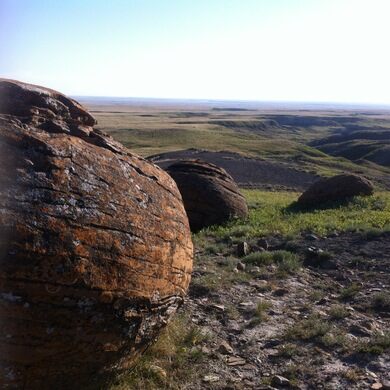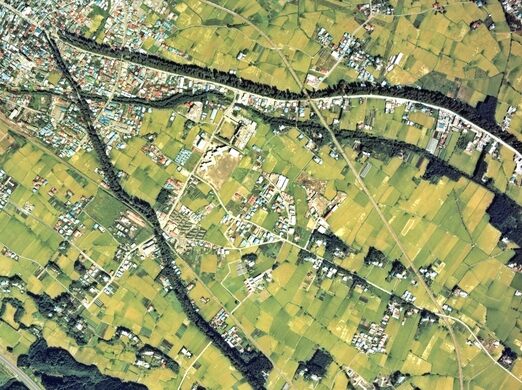STUNNING AVENUE
OF BAOBABS
G'day folks,
The dirt road on the west
coast of Madagascar linking Morondava and Belo Tsiribihina is framed by
dozens of rare and ancient baobab trees creating a setting so beautiful
and unique that it may become the country’s first official natural
monument.
These giant, dry season-deciduous trees (members of the Mallow
family), many of which are more than 800 years old with trunks that are
over 150 feet around did not always stand alone. At one time the trees
dotting the lane were part of a rich forest of the trees and other
plants, but the encroachment of modern civilization and increasing
populations in the area led to massive deforestation leaving the
remaining baobabs to stand in relative isolation. There are also a
handful of the ancient trees remaining in the outlying areas but both
the trees along the road otherwise are under near-constant threat of
destruction. When Arab seafarers first visited a bit over 1000 years
ago, they said the devil ripped them out of the ground and put them back
upside down, for their canopies resemble roots.

Thankfully, private organizations have taken notice of the site and are
now promoting efforts to have the avenue protected, making it the
country’s first nationally recognized natural monument, so that the
trees might survive for another 800 years to come. Baobabs are
incredibly useful plants, their trunks are harmlessly tapped for water
during the dry season and have even been lived in, the young leaves
(when reachable) are eaten as a salad vegetable when little else is
available, and the nutritious sour brown pulp (tasting somewhat like
tamarind) of the hard-shelled fruits is made into a pleasant summertime
beverage all over Africa, and is also an ingredient in a Senegalese
peanut and couscous dessert pudding called Ngalakh. These trees are
popular in novelty gardens around the warmer parts of the Mediterranean
and sometimes show up in southern California, they are hardy to plant
hardiness zone 10a (minimum of 30 to 35 F) and will not survive more
than 8 to 10 hours in the snow. Another peculiar fact is that baobabs
blossom, but the blooming period is very short, only about 24 hours.

Clancy's comment: Stunning trees. Stunning avenue.
I'm ...






















































